Two Oceans at Once
Ayesha Green, Ruth Ige, Rozana Lee, Nicole Lim, Jane Chang Mi, Talia Smith, Vaimaila Urale, Layne Waerea, and Yonel Watene
Curated by Cameron Ah Loo-Matamua and Charlotte Huddleston
15 February 2019 - 17 May 2019
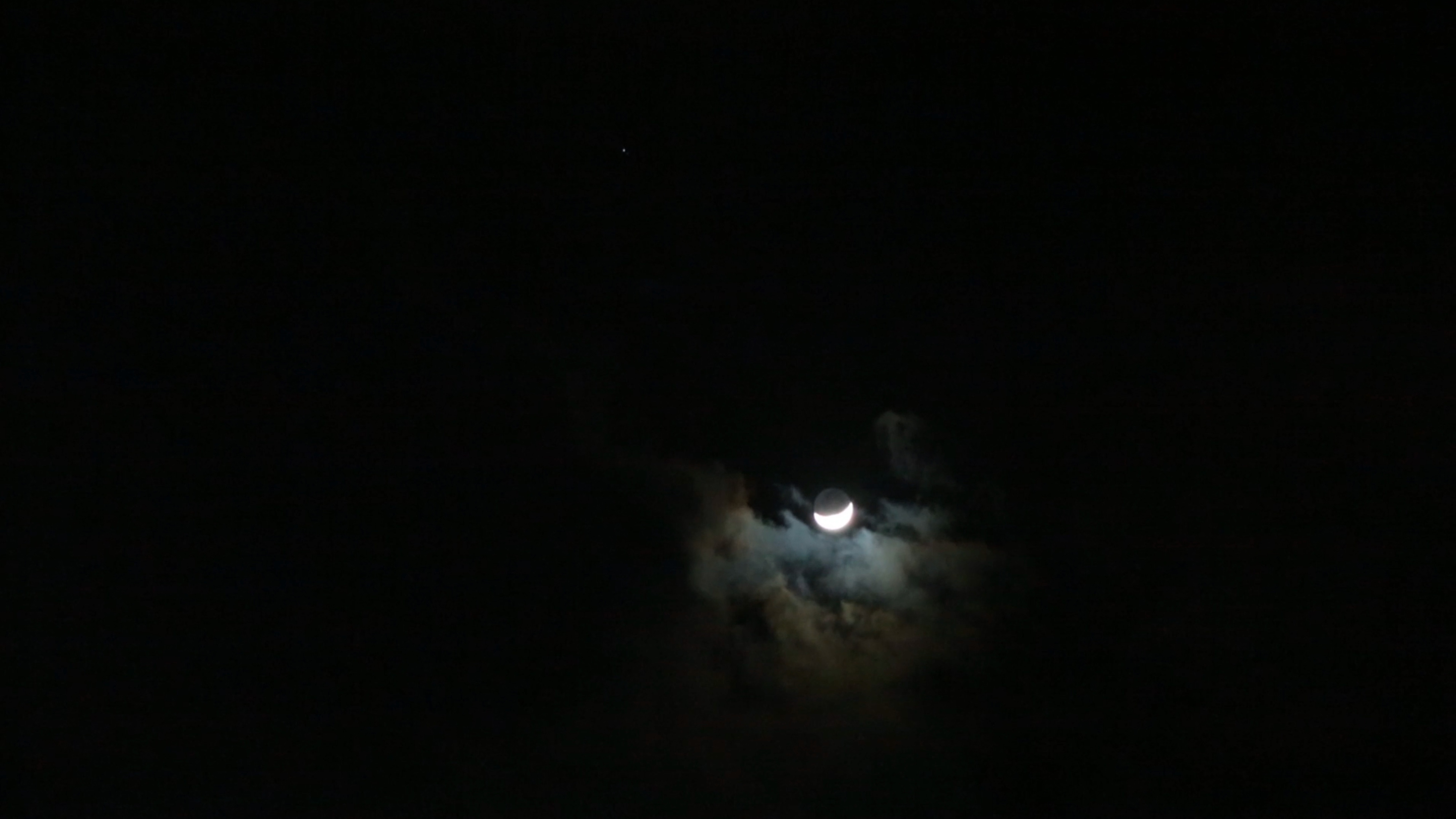
Jane Chang Mi, Hānaiakamalama, 2014. Still from single-channel video, 16 minutes. Image courtesy of the artist.
Two Oceans at Once: roomsheet (15 February - 18 April); roomsheet (18 April - 17 May); accompanying publication by Yonel Watene
Two Oceans at Once at The Physics Room: roomsheet; Art, Not Science podcast (artist talk)
Two Oceans at Once is named from a phrase in a story by Uruguayan journalist and poet Eduardo Galeano. In the story ‘Americans’, from the book Mirrors: Stories of Almost Everyone, Galeano retells the commonly known history of the world in 600 short episodes. Here it is:
Official history has it that Vasco Núñez de Balboa was the first man to see, from a summit in Panama, two oceans at once. Were the natives blind?
Who first gave names to corn and potatoes and tomatoes and chocolate and the mountains and rivers of America? Hernán Cortés? Francisco Pizarro? Were the natives mute?
The Pilgrims on the Mayflower heard Him: God said America was the promised land. Were the natives deaf?
Later on, the grandchildren of the Pilgrims seized the name and everything else. Now they are the Americans. And those of us who live in the other Americas, who are we?
At face value, it is an account of discovery, naming and renaming as part of historic global exploration in search of ‘new’ territories and resources. The ‘two oceans’ in Galeano’s story are the Atlantic Ocean and the Pacific Ocean. In the context of Aotearoa, Two Oceans at Once takes on the impetus of retelling, where 2018 was the 125th anniversary of women’s suffrage, and 2019 holds the 60th anniversary of the signing of the Antarctic Treaty and the 250th anniversary of the arrival of Captain James Cook—an arrival that, like Vasco Núñez de Balboa’s, involved naming.
In the retelling of past events as history, dominant sociocultural constructions privilege linear and chronological retelling in a single voice. But within Galeano’s account, as with the events of Cook’s arrival, there are multiple positions from which history can be told. In ‘Americans’, Galeano questions whose voice is heard and remembered in accounts of history. As an exhibition, Two Oceans at Once holds multiple narratives. These are narratives of arrivals, departures, naming, giving voice, being heard, listening, co-habitation, time, place, memory, knowledge, language and love. Recognising that there is no singular past, present or future, the exhibition looks to reorient historical time within the real experiences of communities.
ST PAUL St Gallery, Tāmaki Auckland: 15 Feb - 17 May 2019
The Physics Room, Ōtautahi Christchurch: 3 Oct - 17 Nov 2019
Ayesha Green's work was realised with the support of Creative New Zealand.
![]()
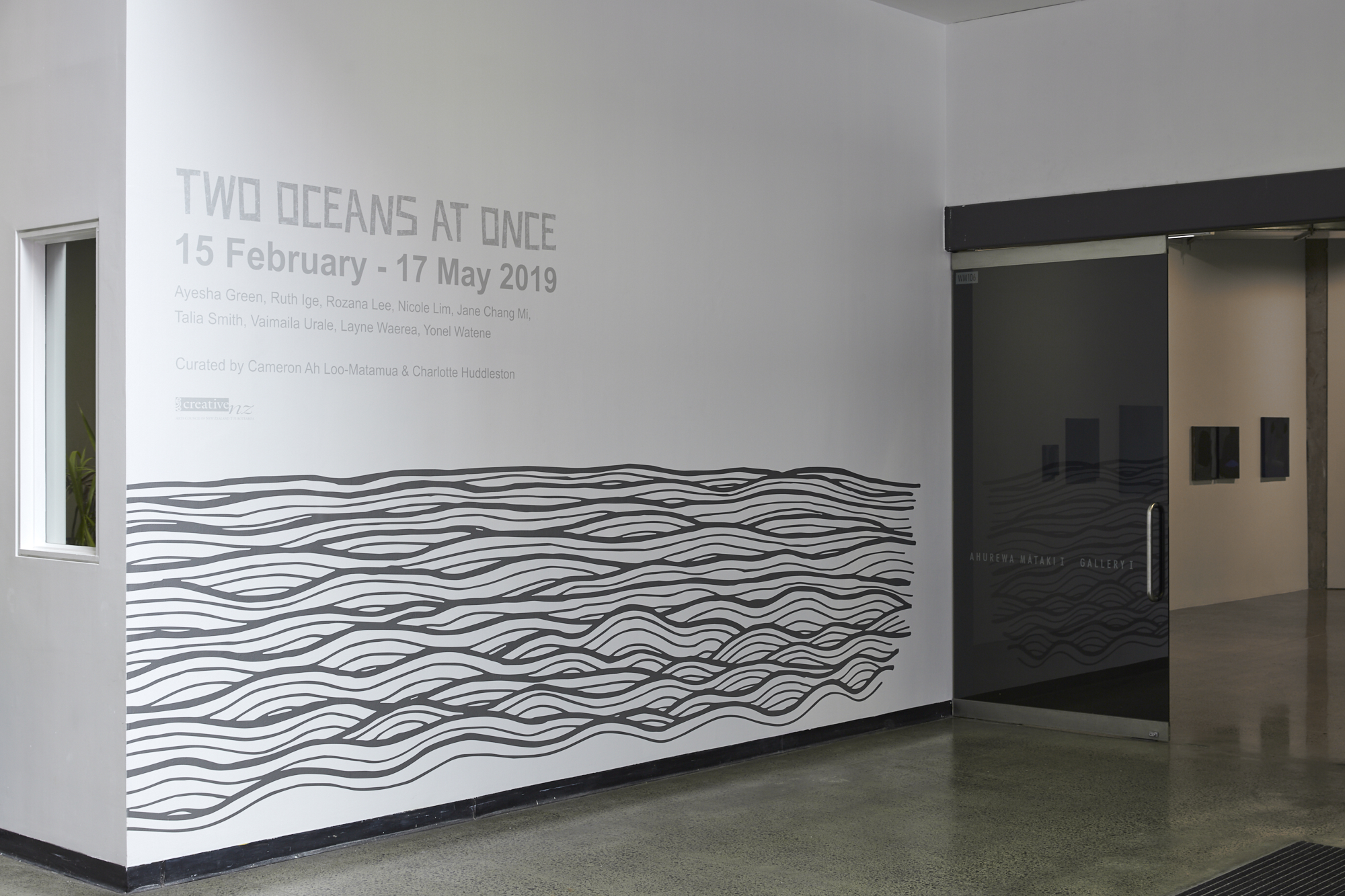
Nicole Lim, design for Two Oceans at Once, 2019. Vinyl. Photo: Sam Hartnett.
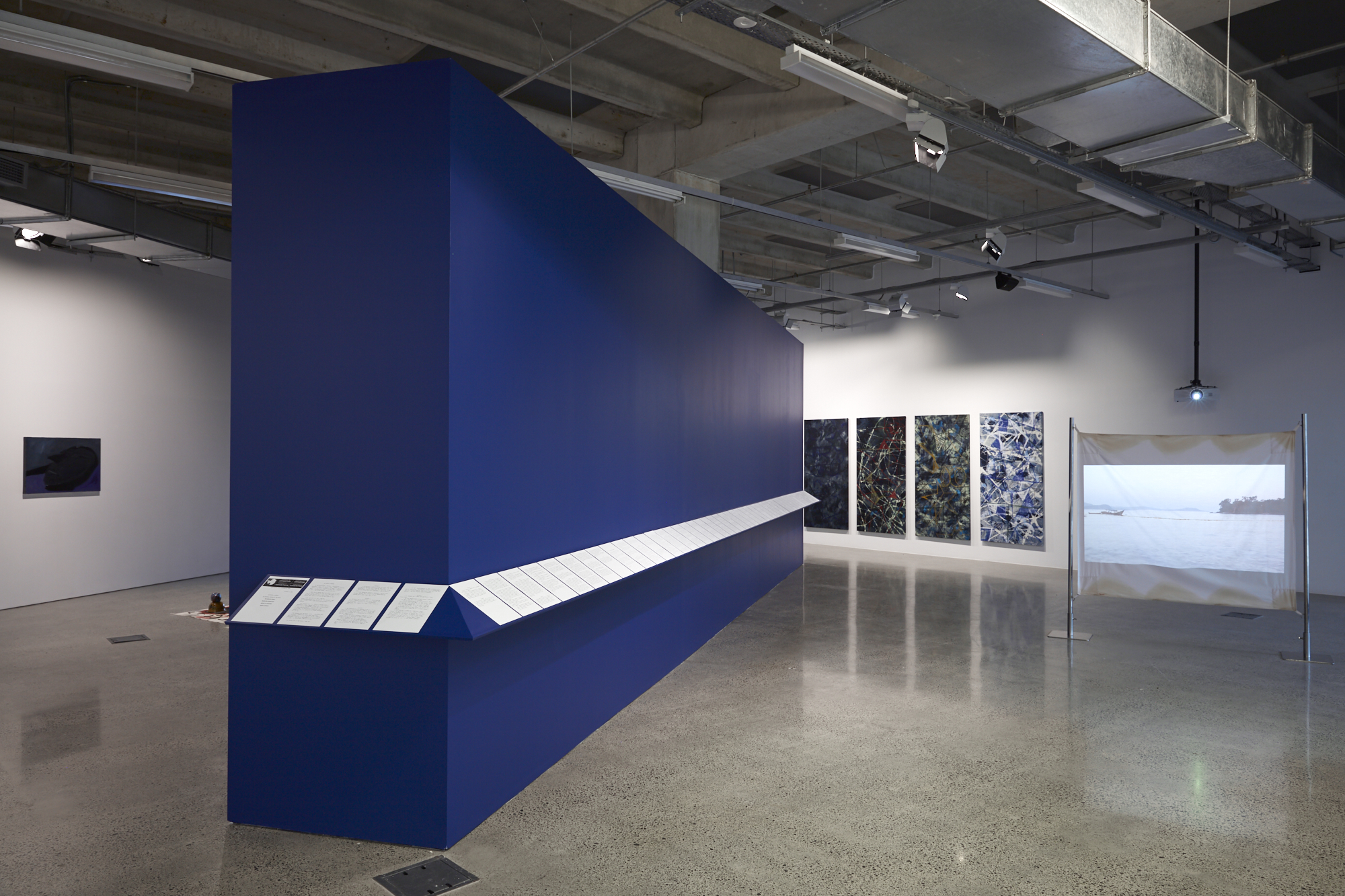
From left: Ruth Ige, Parallel worlds and the mundane: The Seer, 2019; Mid left: Jane Chang Mi, Te Tiriti o Atātika, 2015–ongoing; Mid right: Yonel Watene, Untitled Margo Glantz Painting (2wizards, redeye, starz, bluey), 2018–19; Right: Rozana Lee, Adzan 2018. Photo: Sam Hartnett.
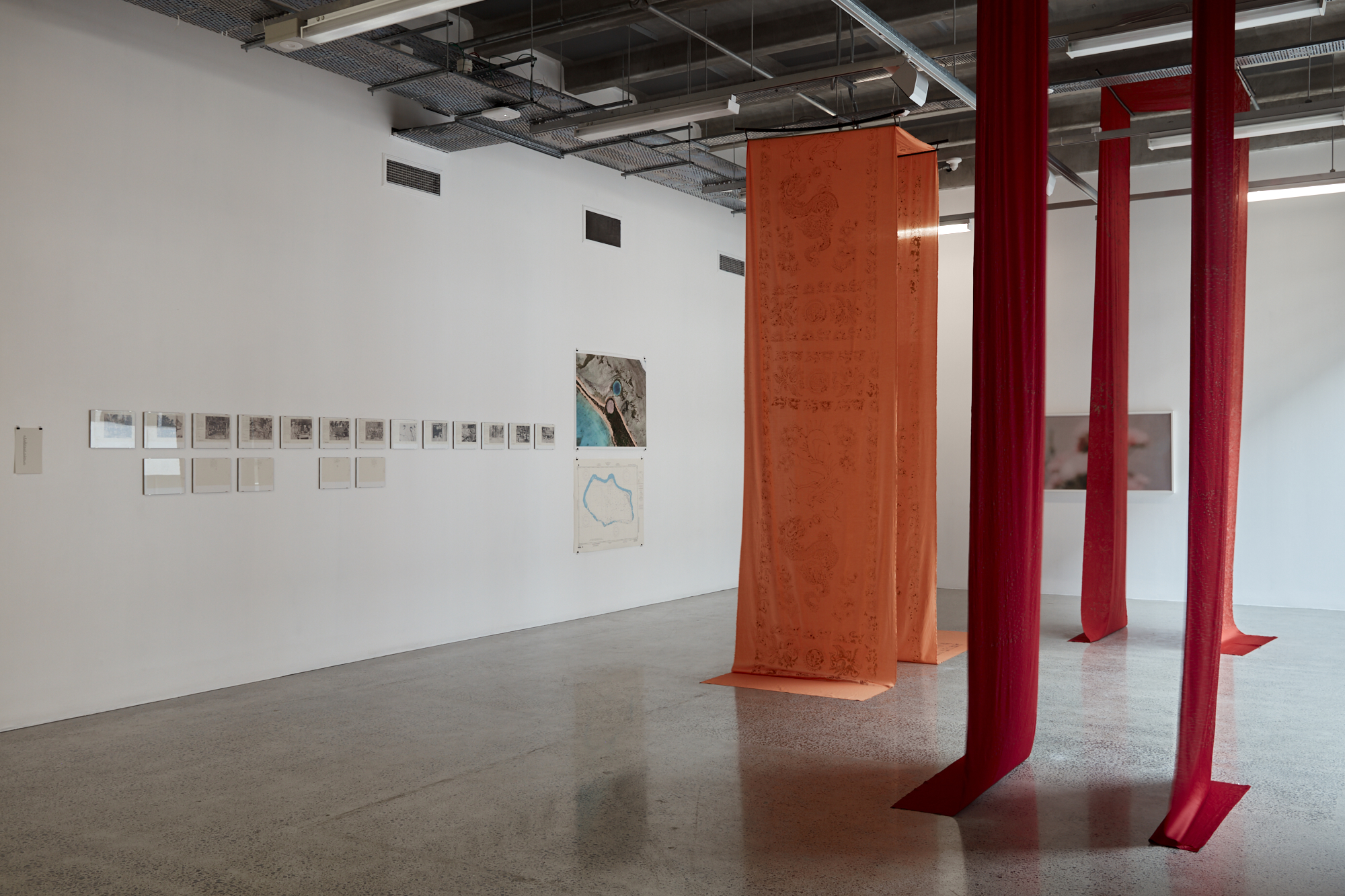
From left: Jane Chang Mi, (See Reverse Side.), 2017; Right: Rozana Lee, The Dreams We Share of Freedom and Love, 2019. Back: Yonel Watene, Untitled flower (pink), 2018. Photo: Sam Hartnett.
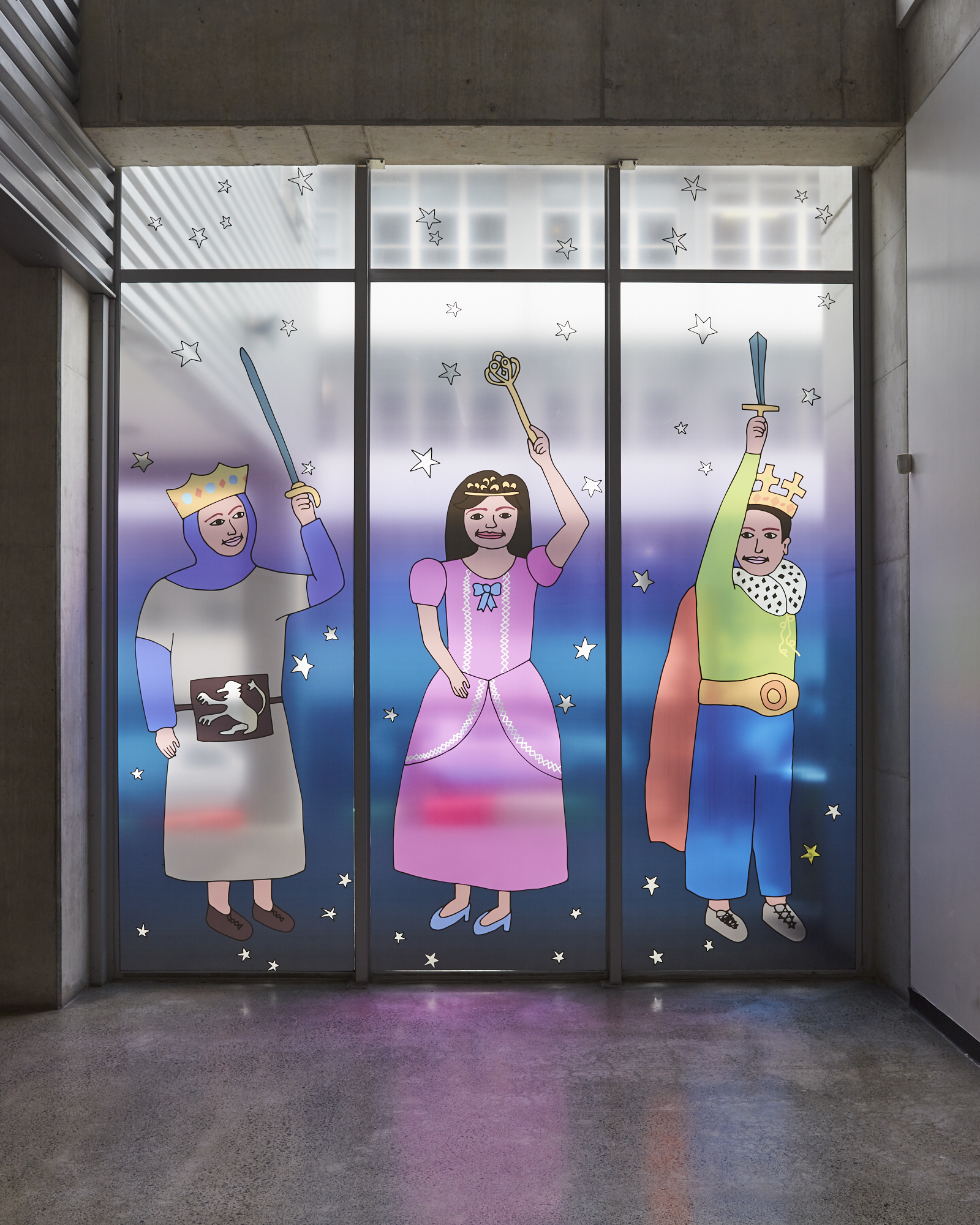
Ayesha Green, Rauru, 2019. Digital print on vinyl. Made with support from Creative New Zealand. Photo: Sam Hartnett.
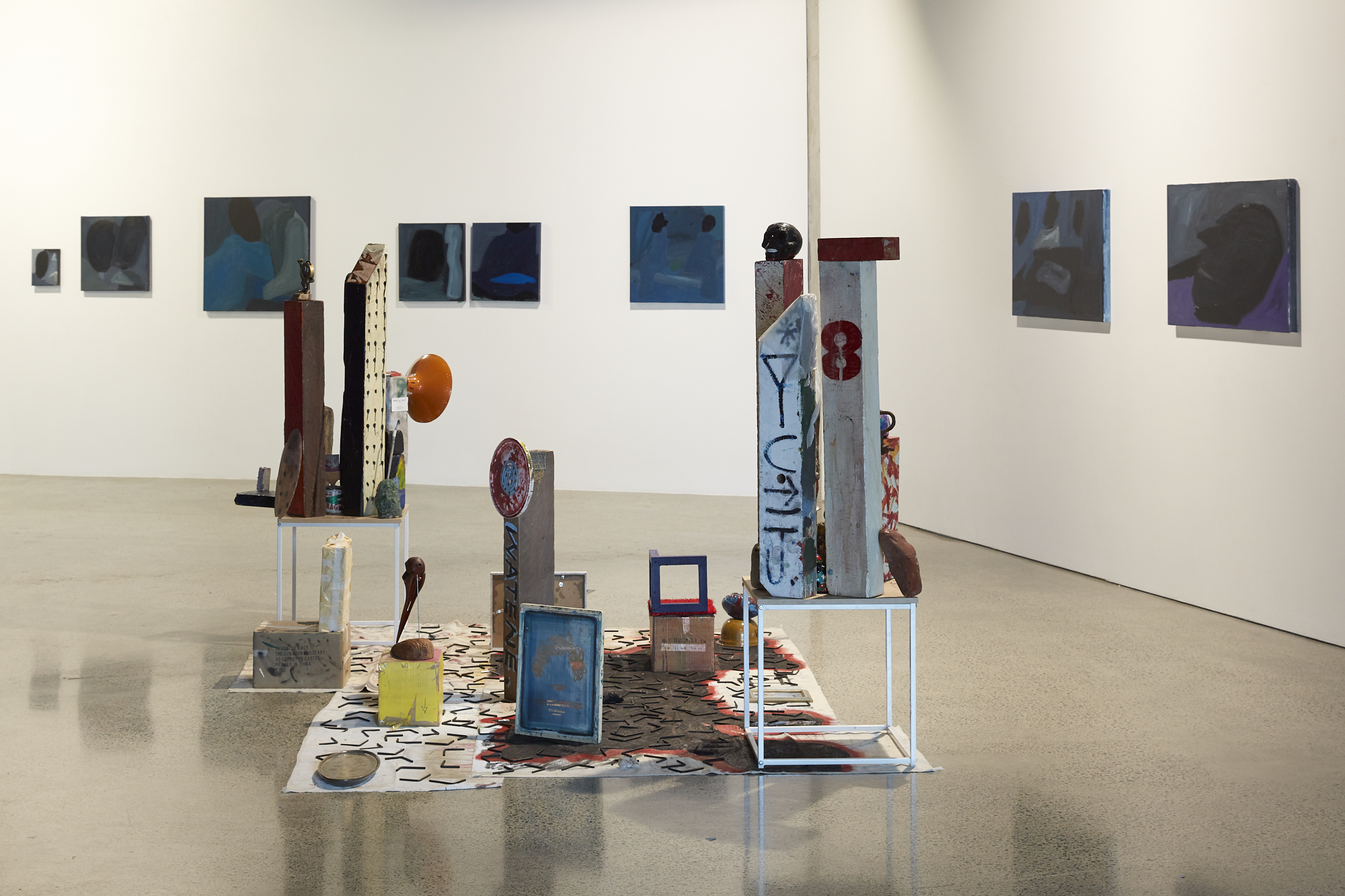
Front: Yonel Watene, permanent sculpture, the Detroit series third and final installment (in order: D is 4 Detroit, 8 Mile and Zug Island and Fighting Island), 2015–18. Back: Ruth Ige, Parallel worlds and the mundane, 2019. Photo: Sam Hartnett.
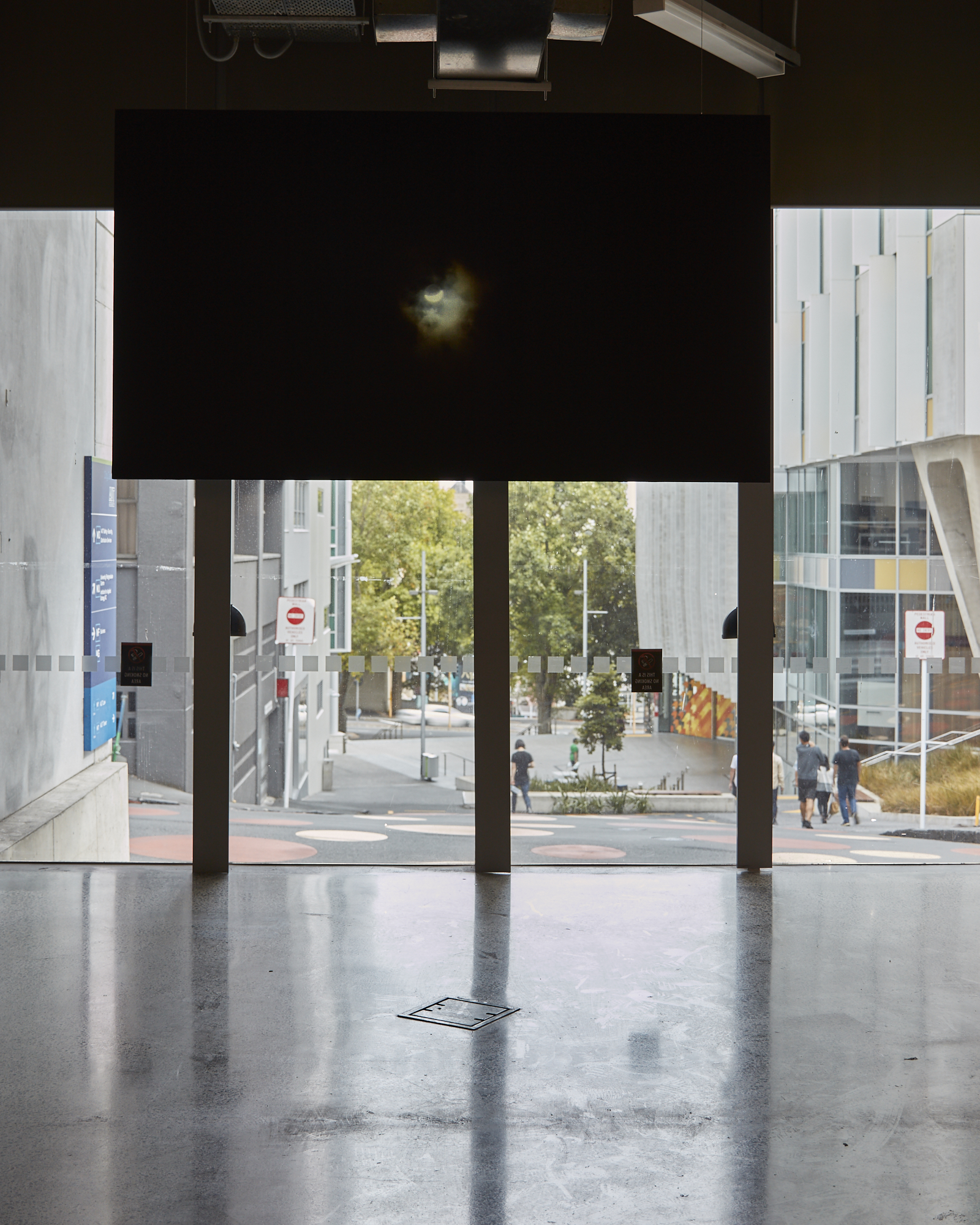
Jane Chang Mi, Hānaiakamalama, 2014. Single-channel video, silent, 16.00 minutes. Photo: Sam Hartnett.
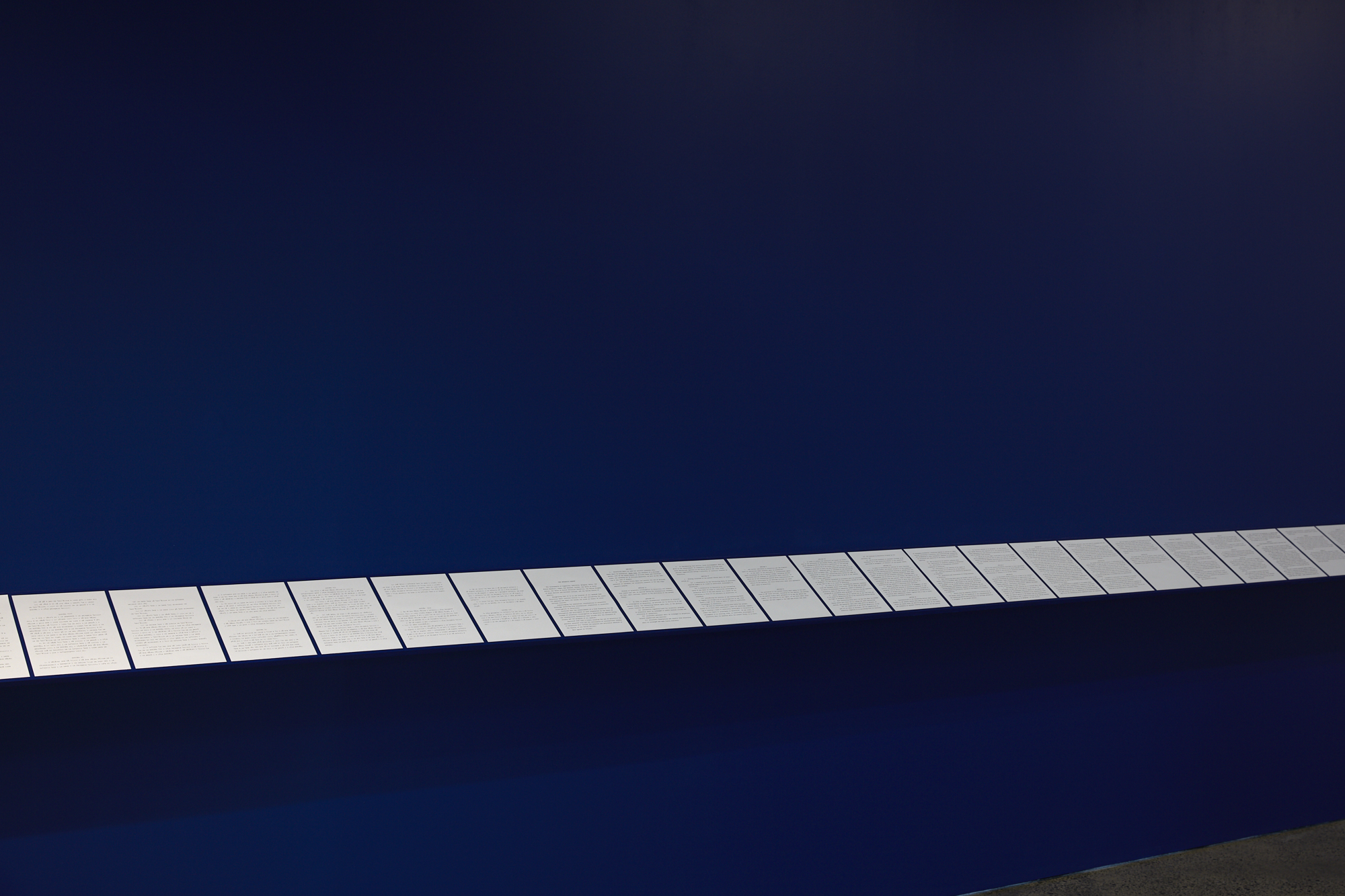
Jane Chang Mi, Te Tiriti o Atātika, 2015–ongoing. Translated into te reo Māori by Eru Kapa-Kingi. Photo: Sam Hartnett.
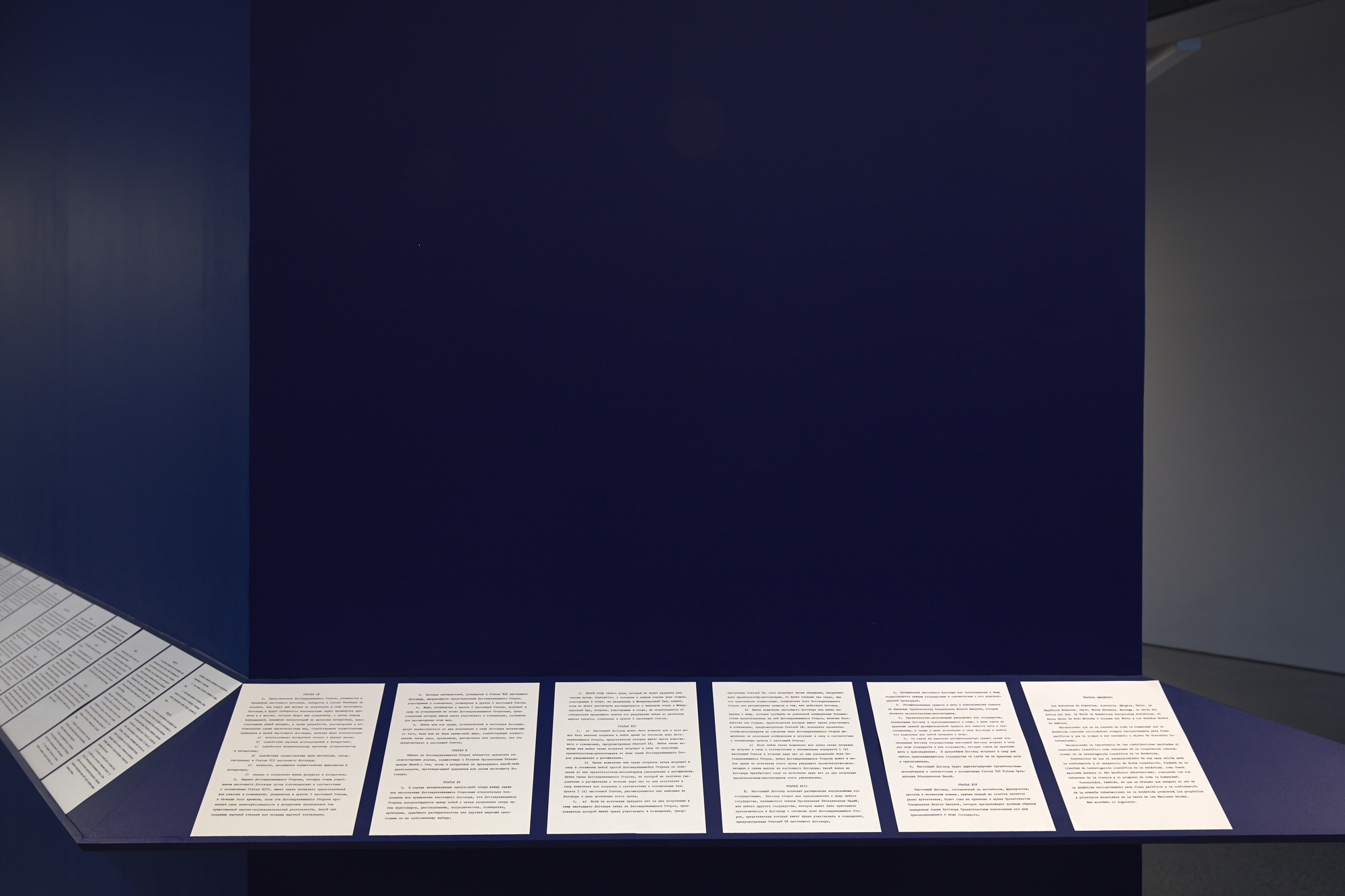
Jane Chang Mi, Te Tiriti o Atātika, 2015–ongoing. Translated into te reo Māori by Eru Kapa-Kingi. Photo: Sam Hartnett.
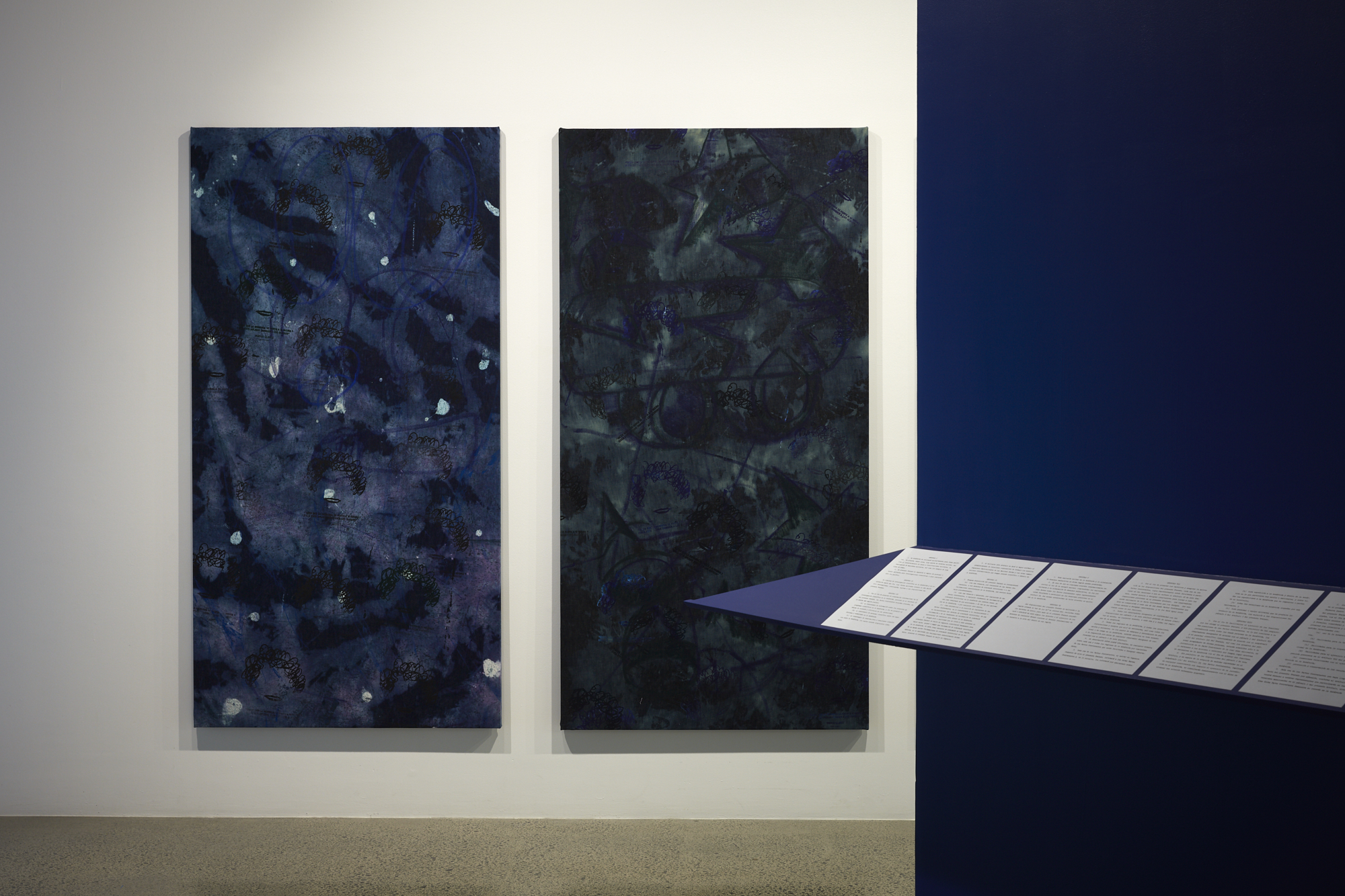
From left: Yonel Watene, Untitled Margo Glantz Painting (2faces, 2wizards), 2018–19; Right: Jane Chang Mi, Te Tiriti o Atātika, 2015–ongoing. Photo: Sam Hartnett.
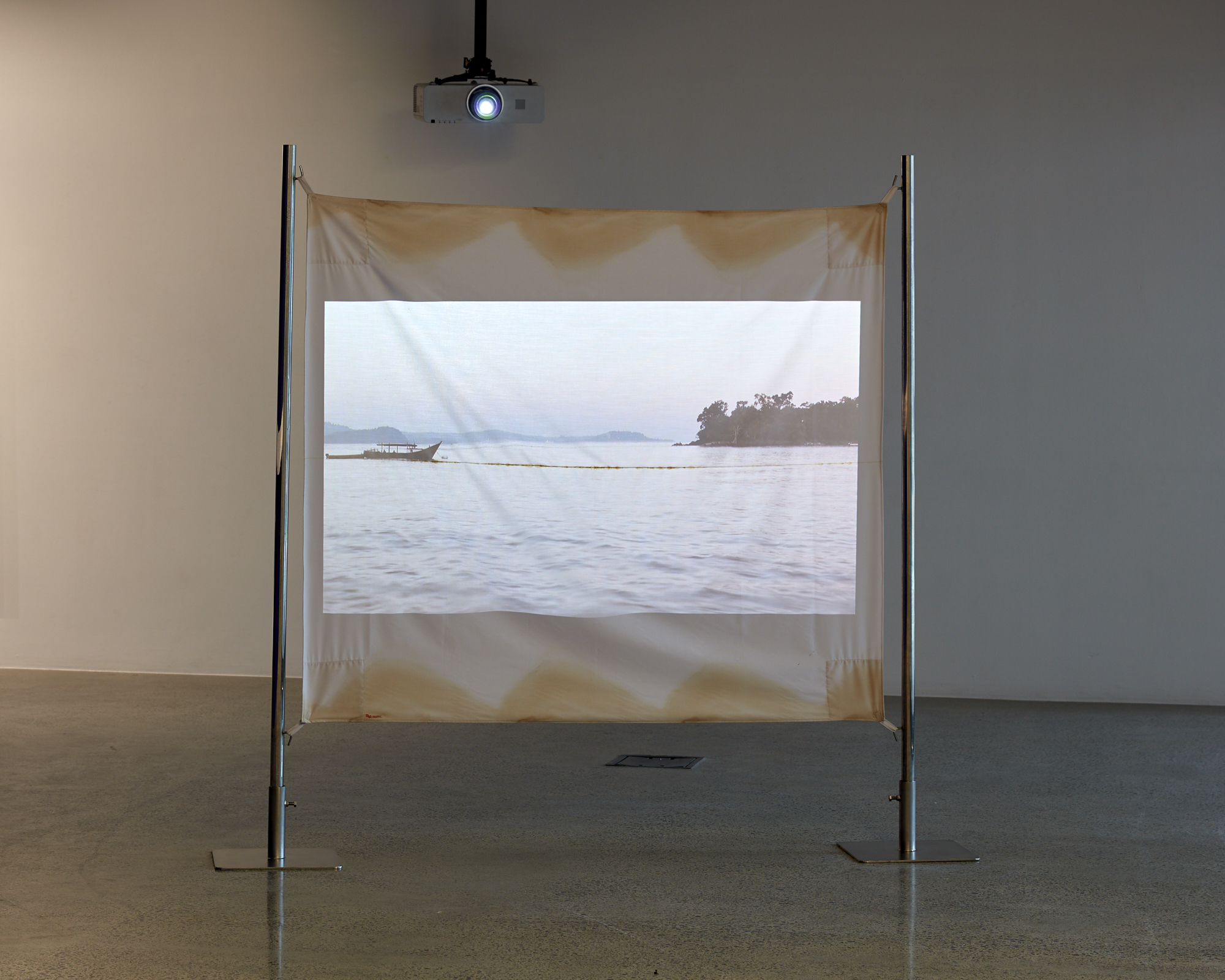
Rozana Lee, Adzan, 2018. Single-channel video with sound, 5.21 minutes, looped, projected onto 2004 tsunami-soiled fabric, stainless steel posts. Photo: Sam Hartnett.
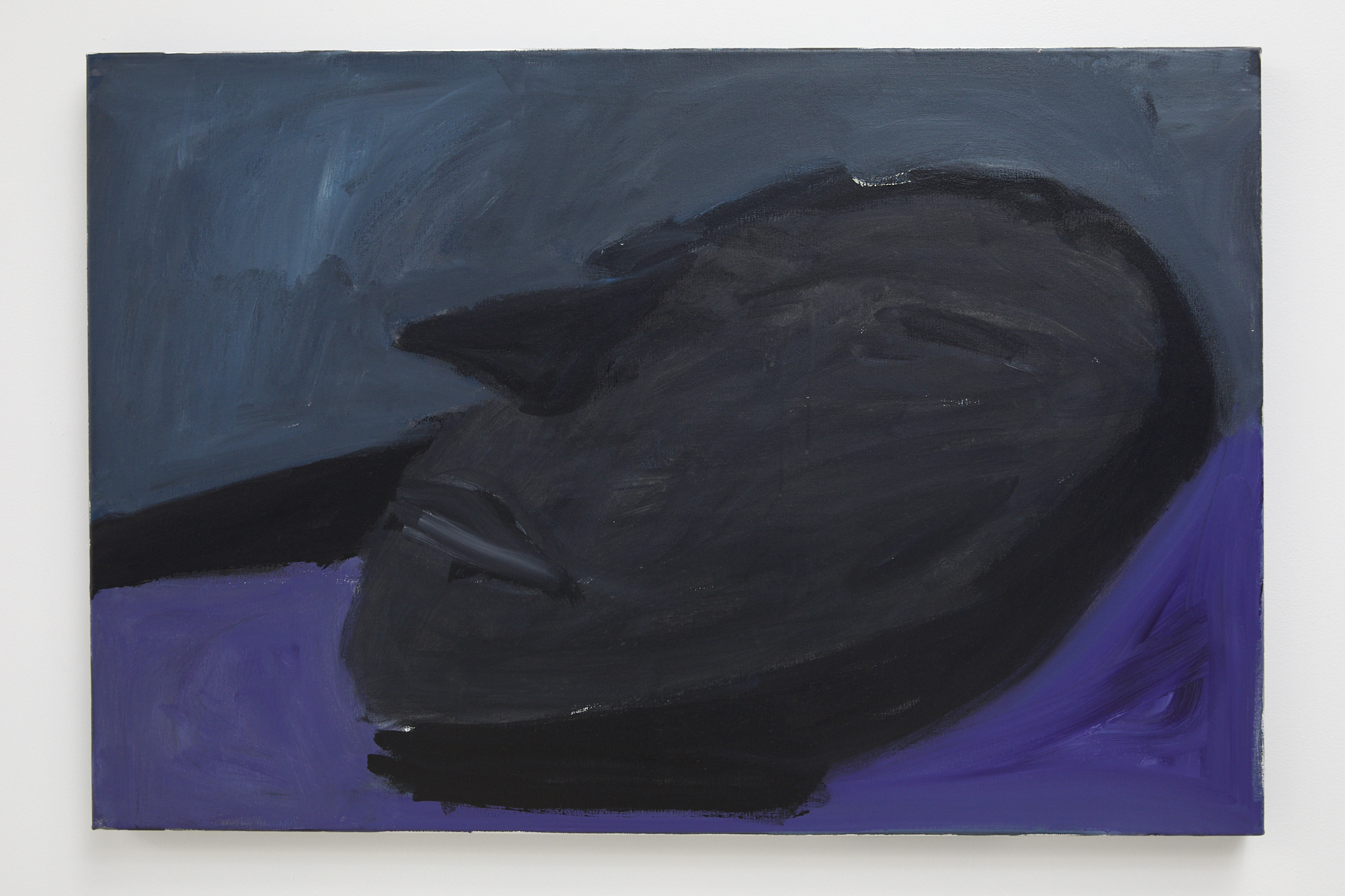
Ruth Ige, Parallel worlds and the mundane: The Seer, 2019. Acrylic on canvas. Photo: Sam Hartnett.
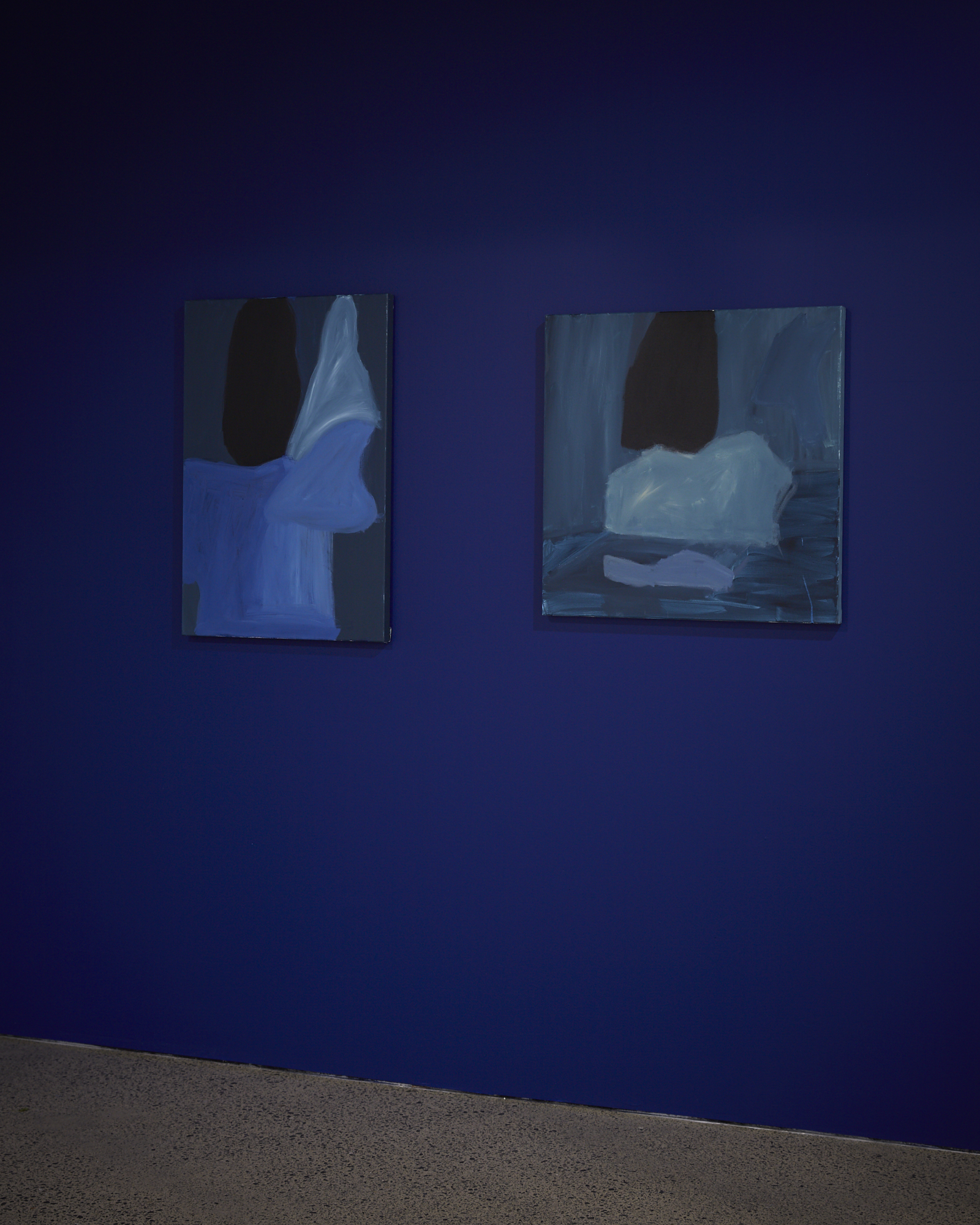
Ruth Ige, Parallel worlds and the mundane: Visions, 2018. Acrylic on canvas; Standing There, 2018. Acrylic on linen. Photo: Sam Hartnett.
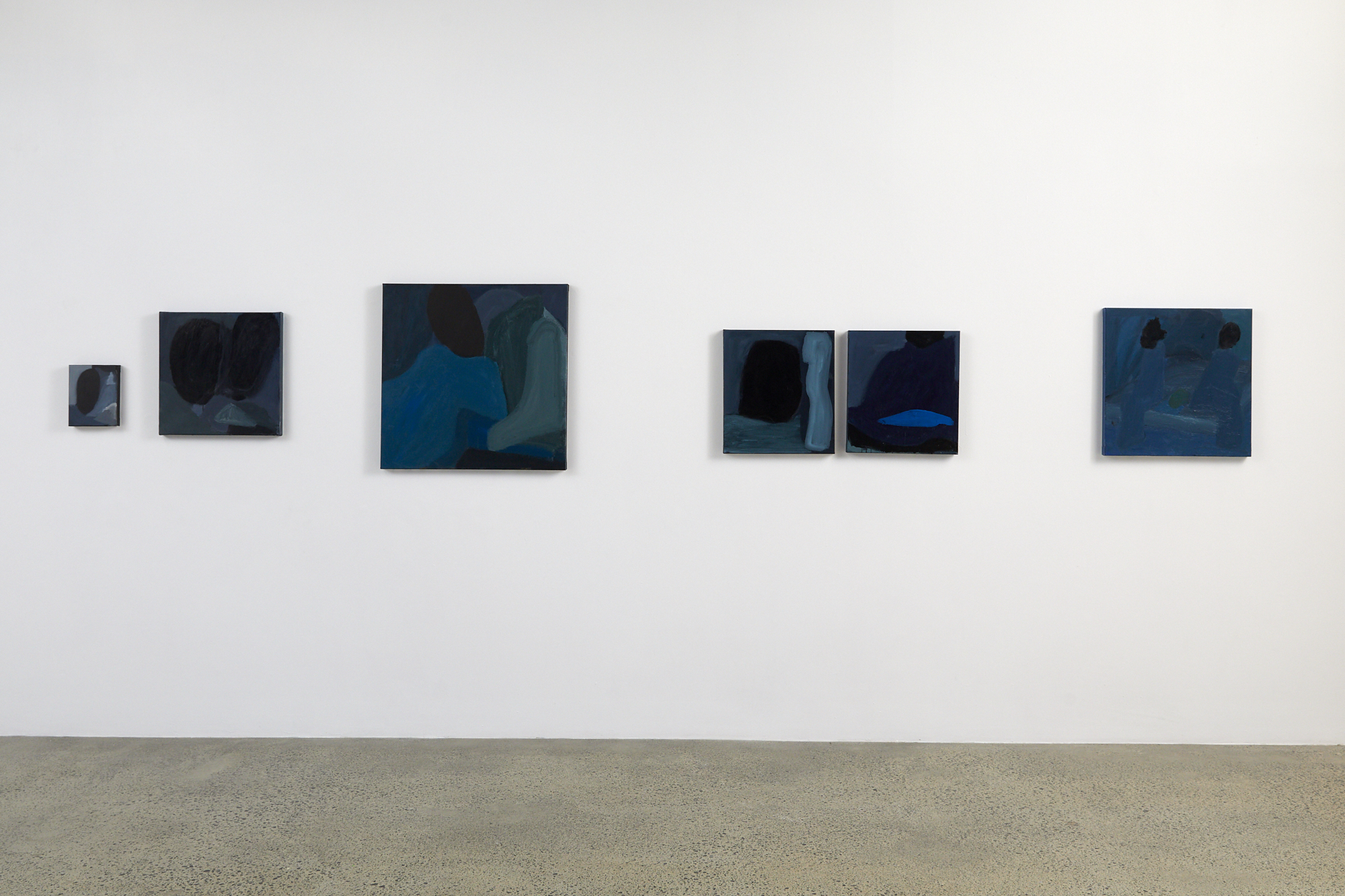
Ruth Ige, Parallel worlds and the mundane (Untitled 3, The twins, Untitled, Untitled 2, Sitting, Clarity), 2019. Photo: Sam Hartnett.
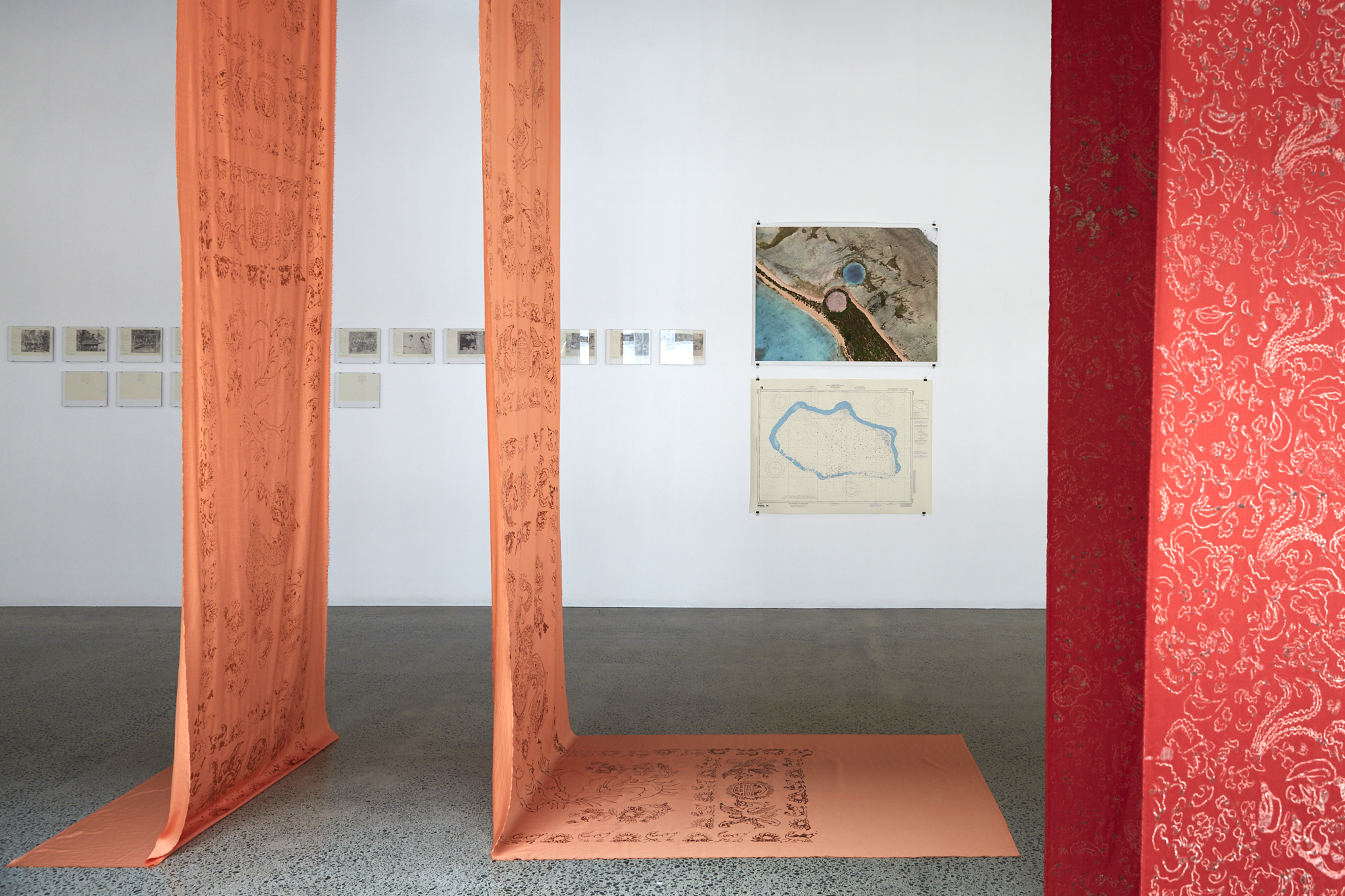
Front: Rozana Lee, The Dreams We Share of Freedom and Love, 2019. Back: Jane Chang Mi, (See Reverse Side.), 2017. Photo: Sam Hartnett.
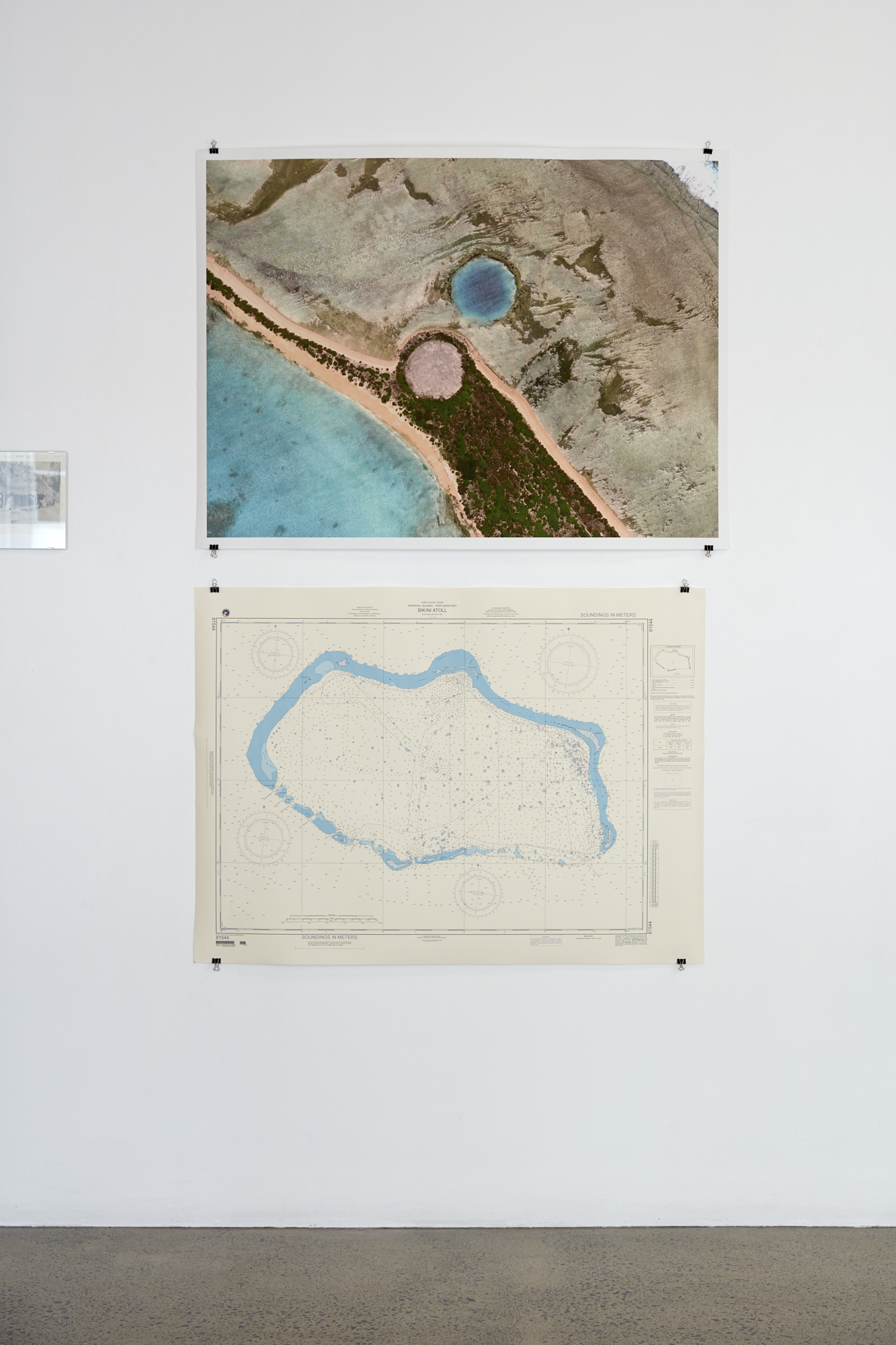
Jane Chang Mi, Cactus Dome, 2017. Google-sourced archival inkjet print; NGA Nautical Chart 81544: Bikini Atoll (Marshall Islands), 2017. Digital print from American Nautical Services. Photo: Sam Hartnett.
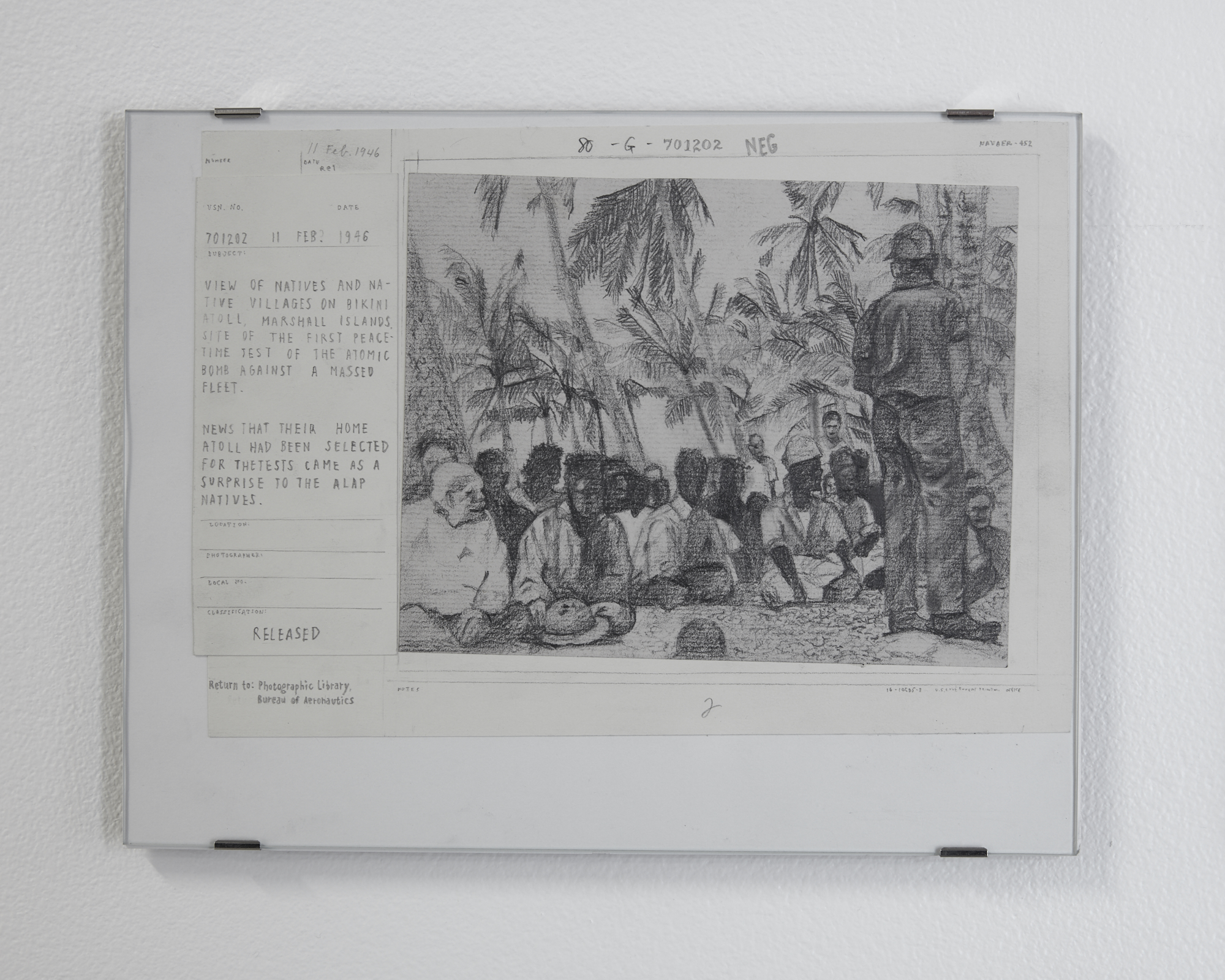
Jane Chang Mi, (See Reverse Side.): 701202, 2017. Drawings from the United States National Archives and Records Administration (NARA), Washington, DC. Photo: Sam Hartnett.
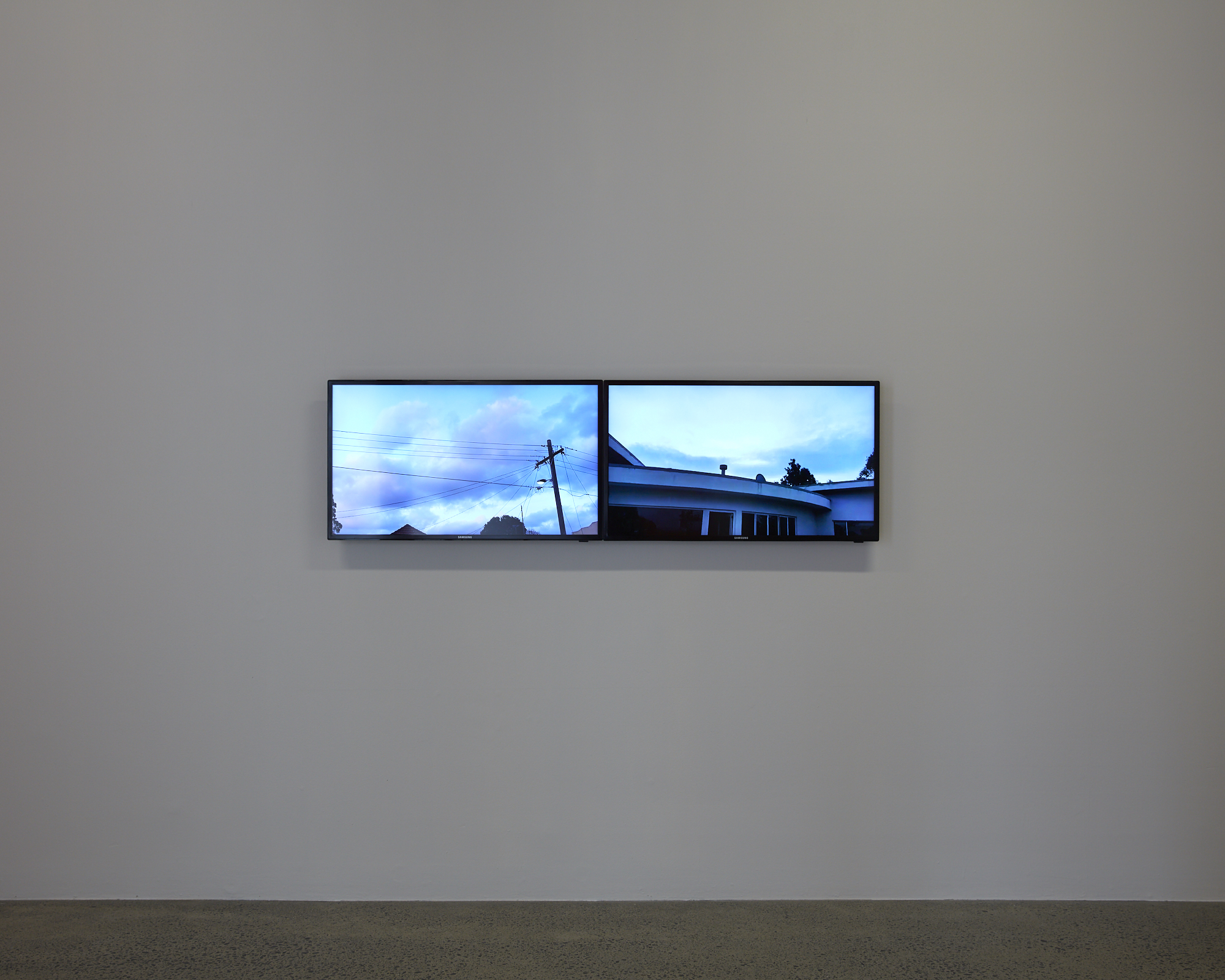
Talia Smith, The light between two points (Sydney–Auckland), 2018. Video shot on iPhone and Samsung Mobile, silent, 8.27 minutes. Photo: Sam Hartnett.
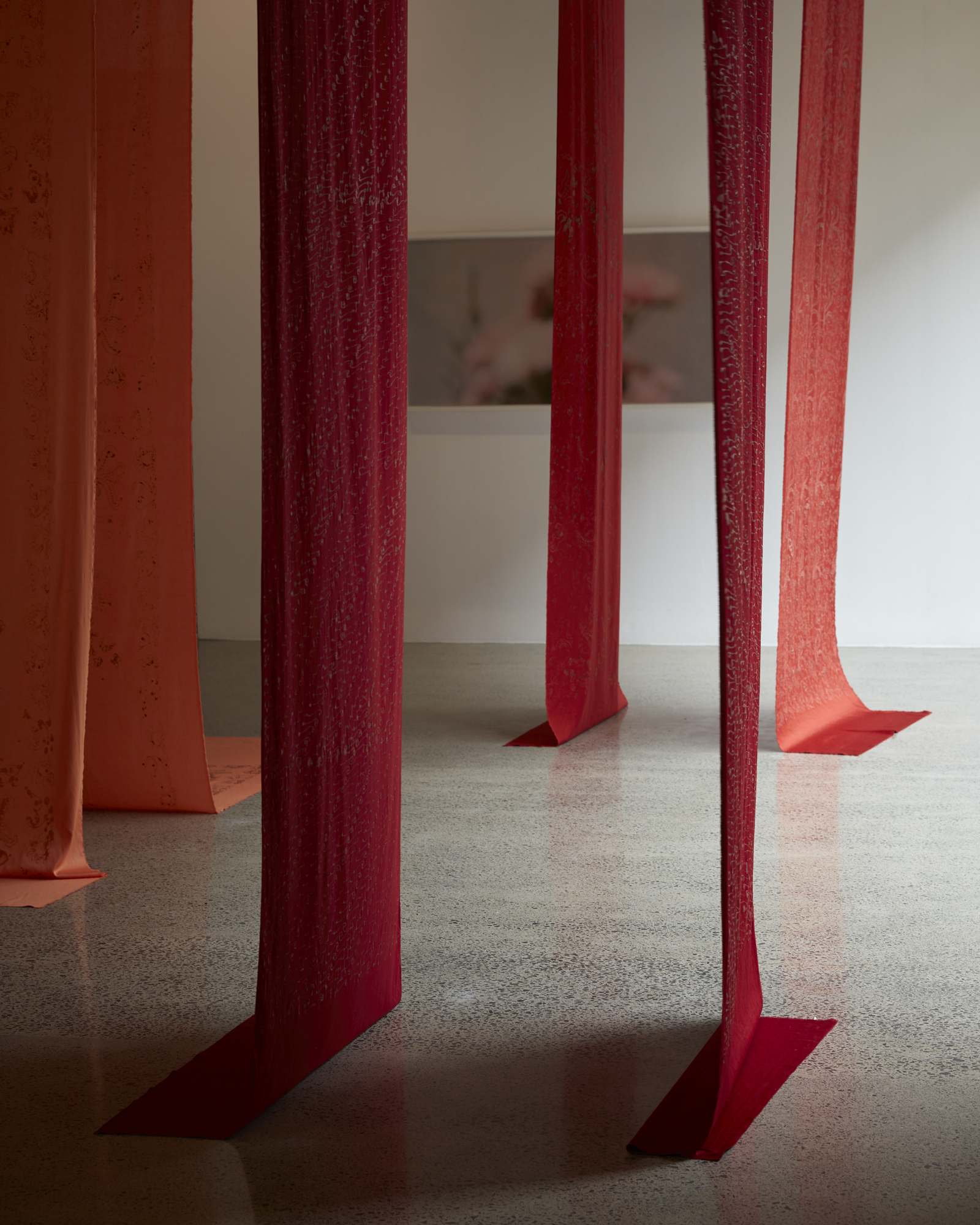
Rozana Lee, The Dreams We Share of Freedom and Love, 2019. Melted wax drawing and fabric dye on cotton, bamboo hanging frames. Photo: Sam Hartnett.
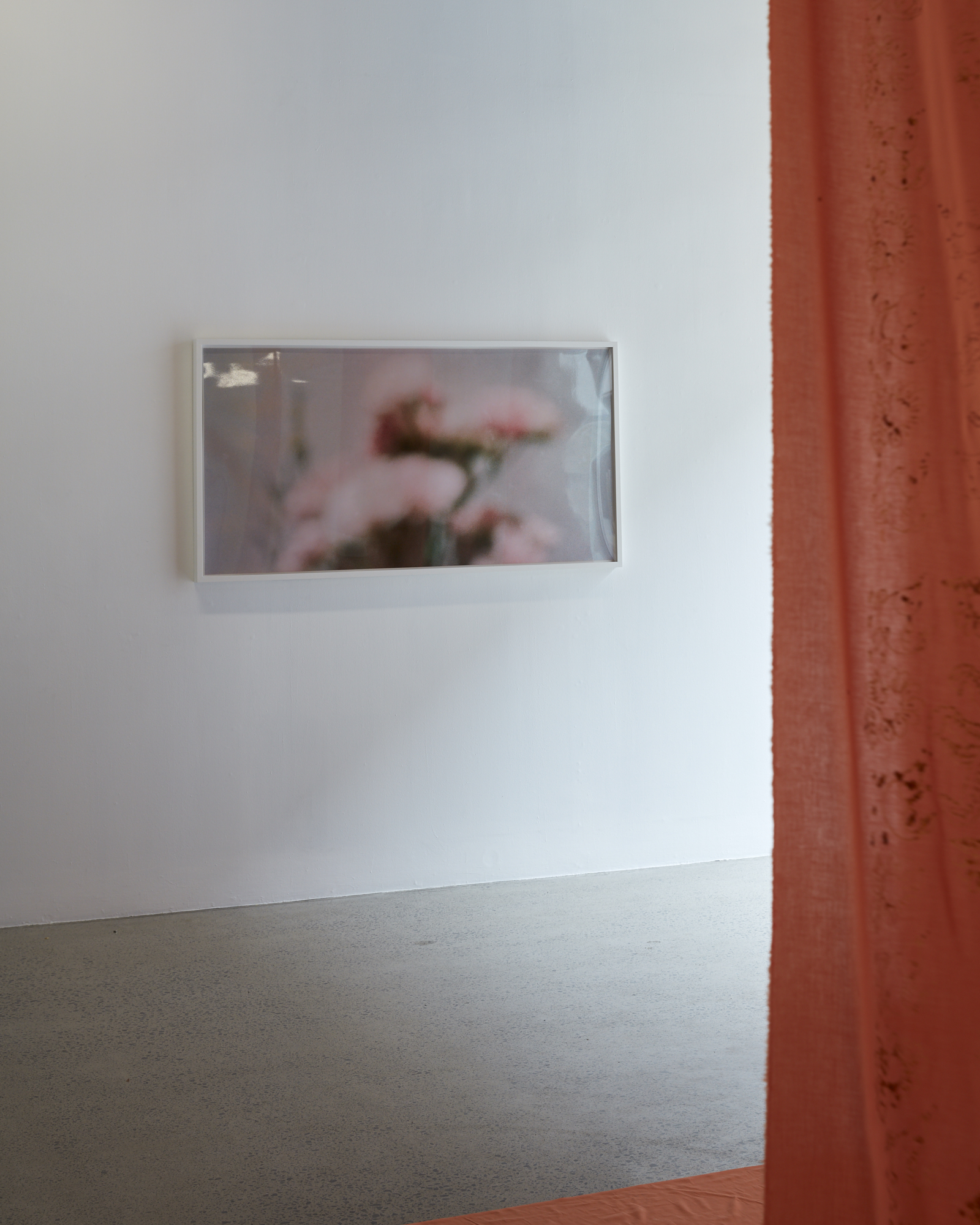
Back: Yonel Watene, Untitled flower (pink), 2018. 35mm photograph, silver halide print on metallic paper, framed, photographed and printed, edition of 1, plus 1 artist proof. Photo: Sam Hartnett.
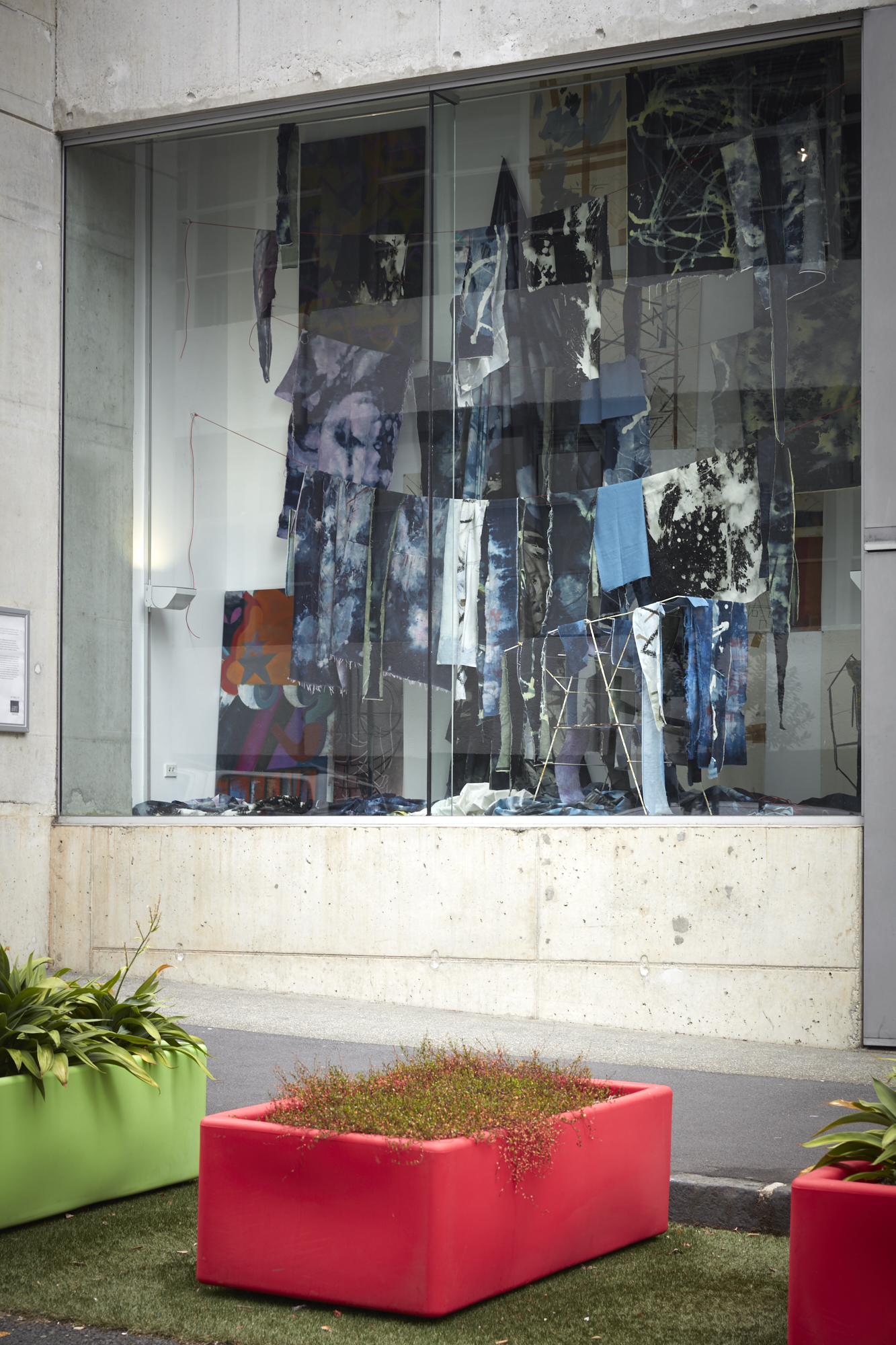
Yonel Watene, Untitled (installation) 2019. Seven days, seven problems, 2018, oil on denim; Smoko, 2018 oil on denim; Untitled (dancers), 2018-2019, spray paint, oil, vintage photograph (from Mexico City) and dye on treated denim; mixed media drawing/s on 780gsm paper, mixed media on unstretched denim, fabric and dropcloth; clothesline; A-Frame clothes hanger. Photo: Sam Hartnett.
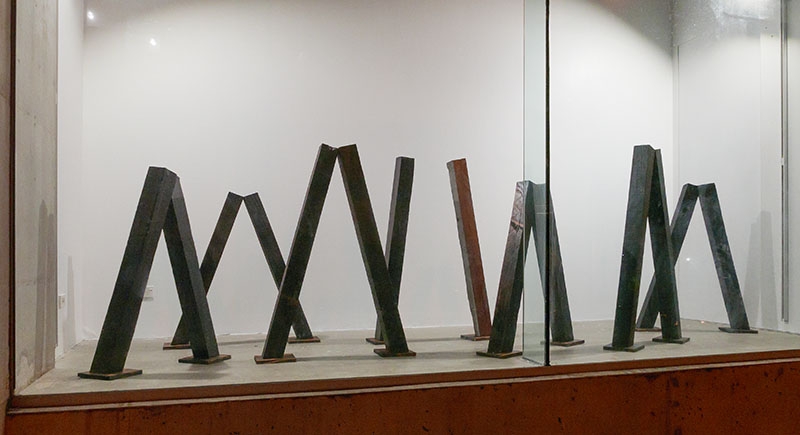
Yonel Watene, not yet titled from the Hongi series, 2019. Materials, left to right: Macrocarpa, ash, and Danish oil; Redwood, ash, and raw linseed oil; Pine, ash, raw linseed oil, turpentine, and oil paint; Salvaged Tawa, ash, raw linseed oil, carnauba wax, paint, and spray enamel; Macrocarpa, ash, raw linseed oil, and teak oil; Pine, ash, raw linseed oil, and oil paint (viridian); Swamp kauri, ash, raw linseed oil, and carnauba wax. Photo courtesy of artsdiary.co.nz.
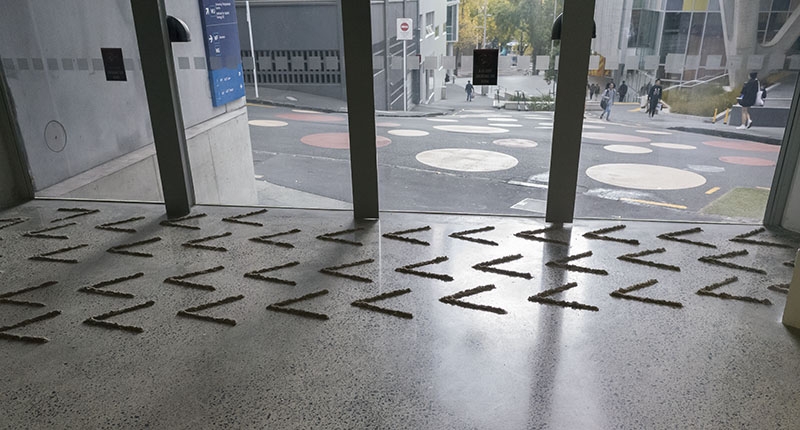
Vaimaila Urale, Motu motu, 2019. Sand. Photo courtesy of artsdiary.co.nz.
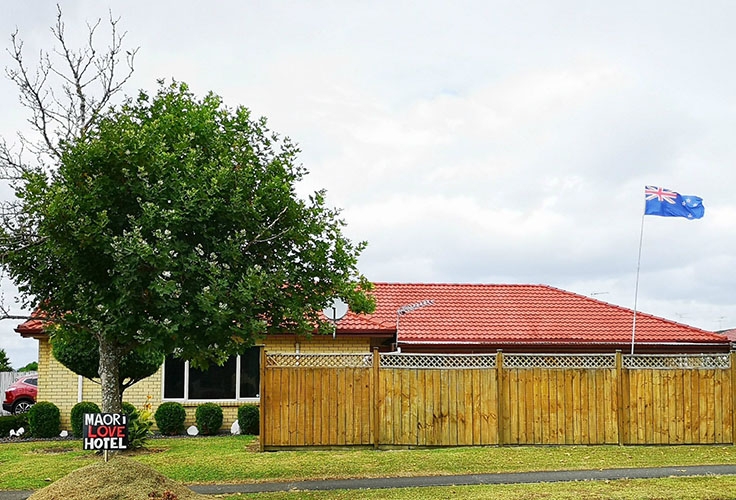
Layne Waerea, Māori Love Hotel, 2019. Artist's post on ST PAUL St Gallery's Instagram account as part of Two Oceans at Once.
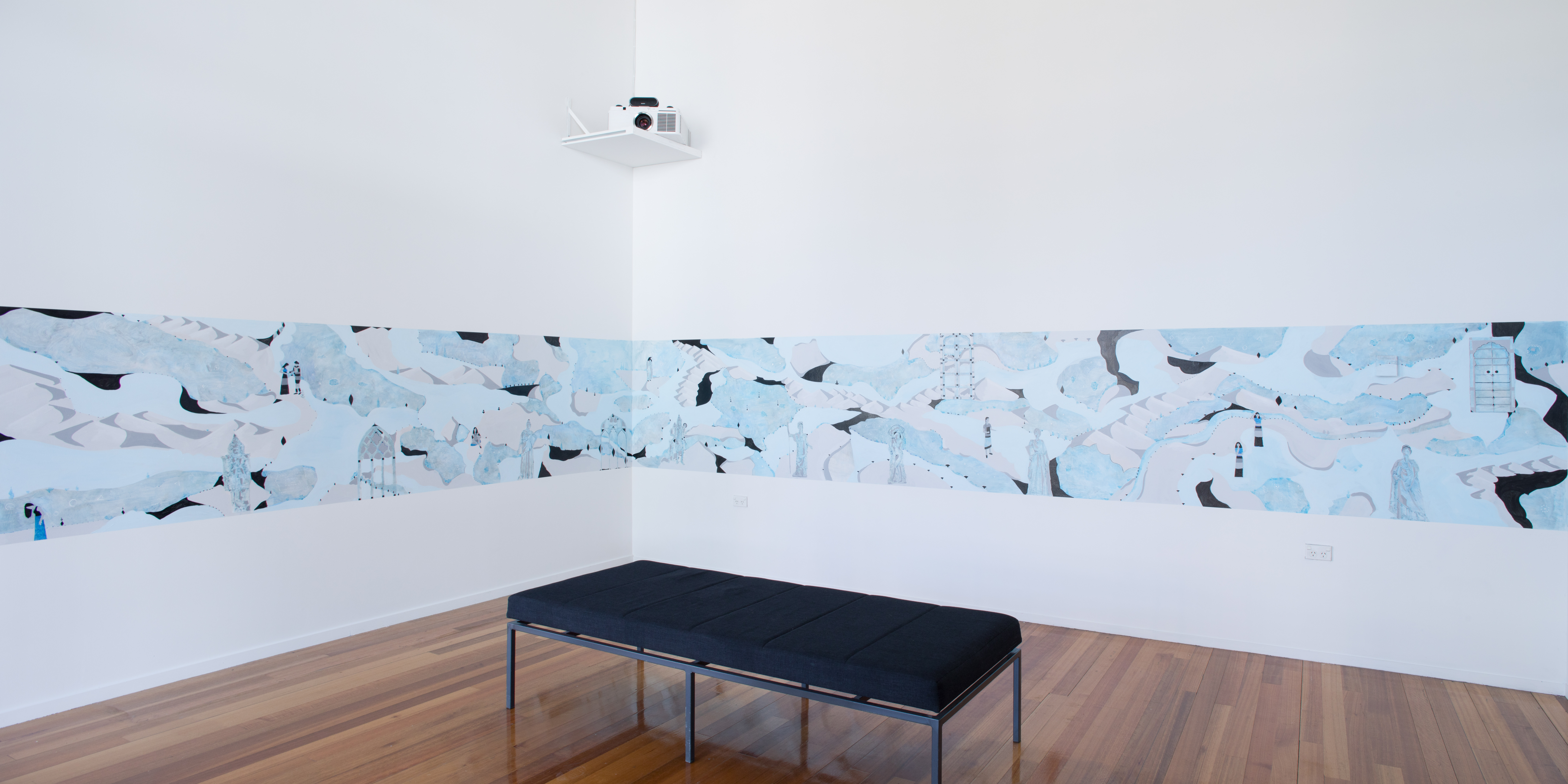
Two Oceans at Once at The Physics Room. Rhea Maheshwari, Ornamental Utopia, 2019. Acrylic wall painting, 1 x 9.6m. Photo courtesy of Janneth Gil.
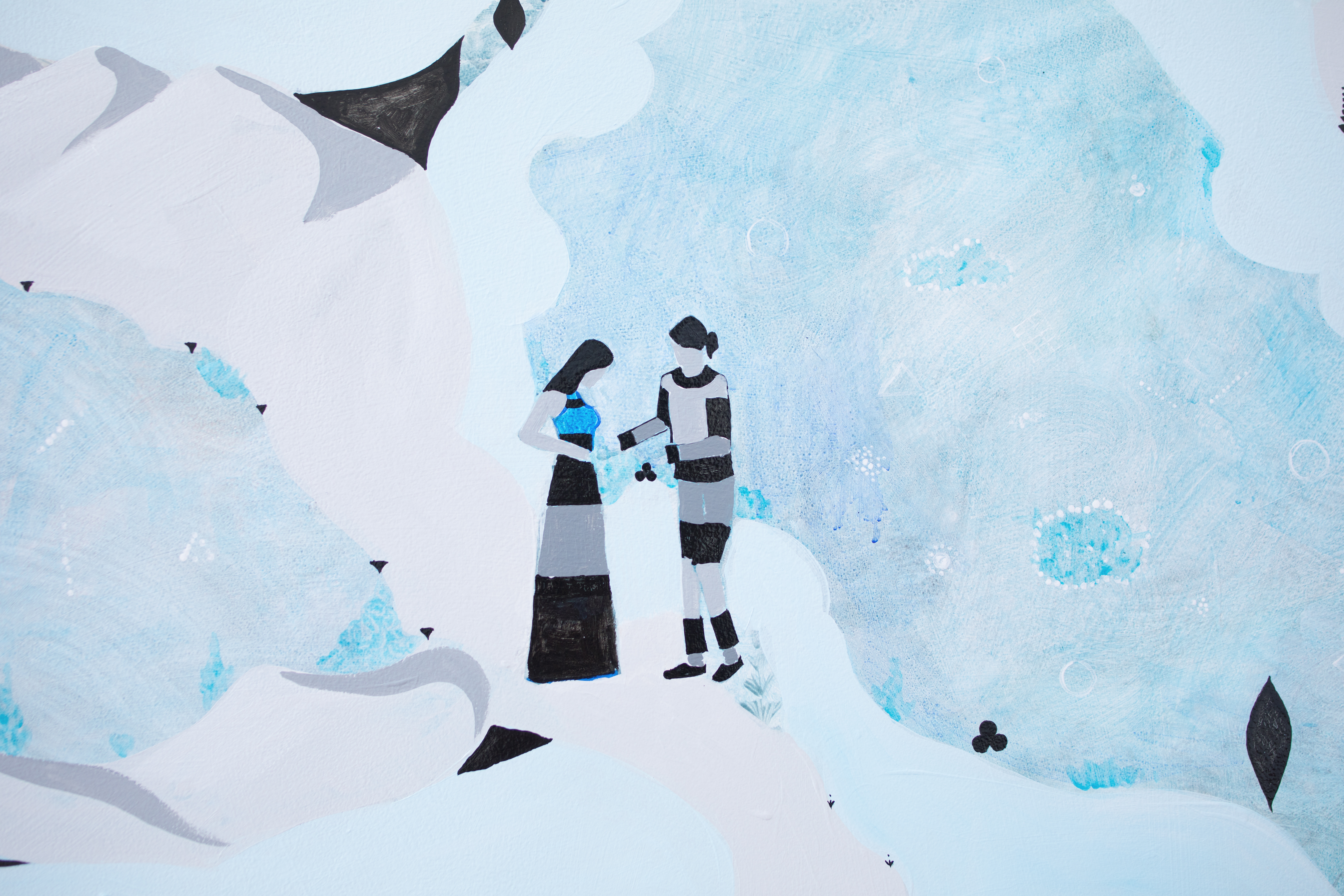
Two Oceans at Once at The Physics Room. Rhea Maheshwari, Ornamental Utopia (detail), 2019. Acrylic wall painting, 1 x 9.6m. Photo courtesy of Janneth Gil.
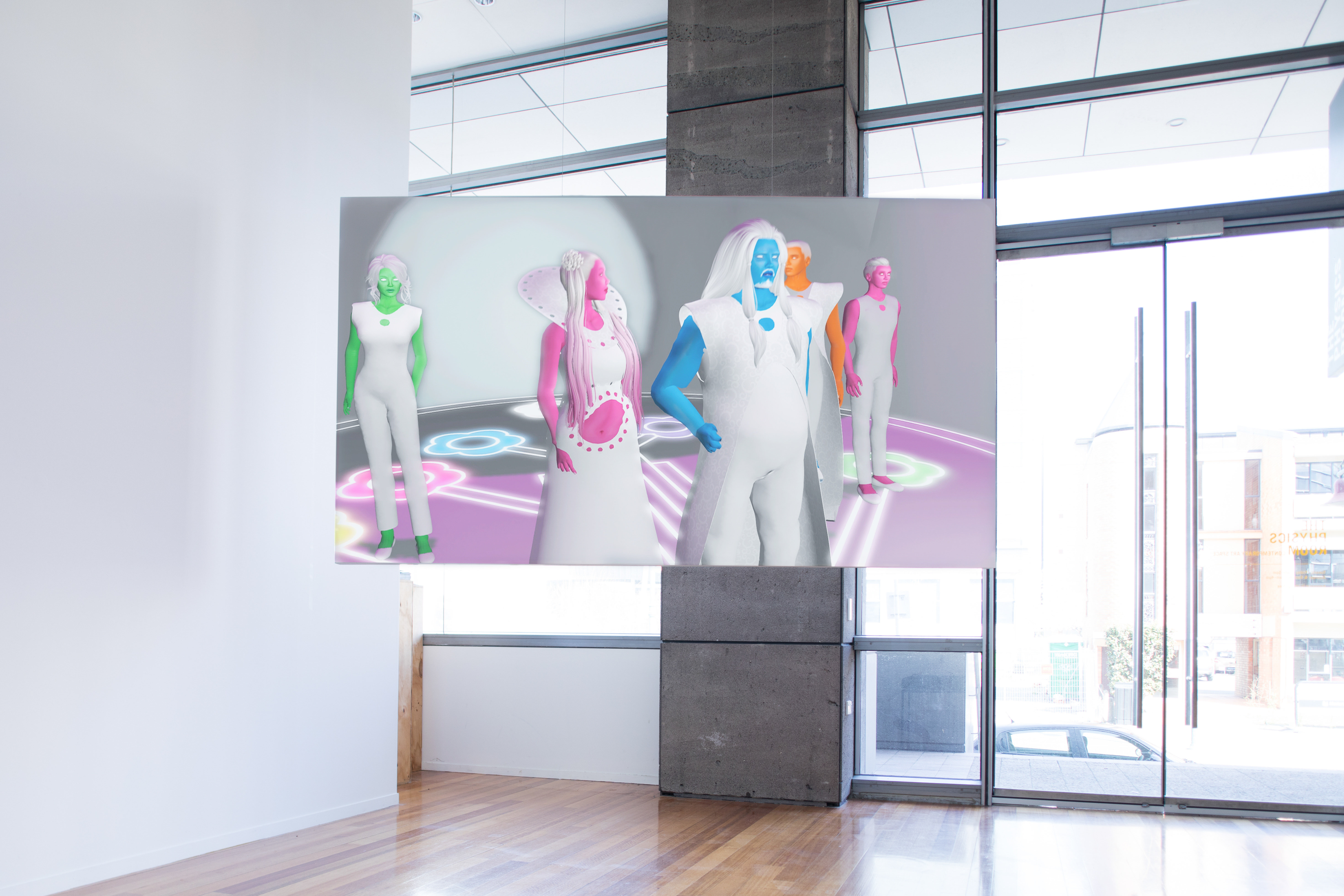
Two Oceans at Once at The Physics Room. Skawennati, She Falls For Ages, 2017. Single channel video, 21:02 minutes. Photo courtesy of Janneth Gil.
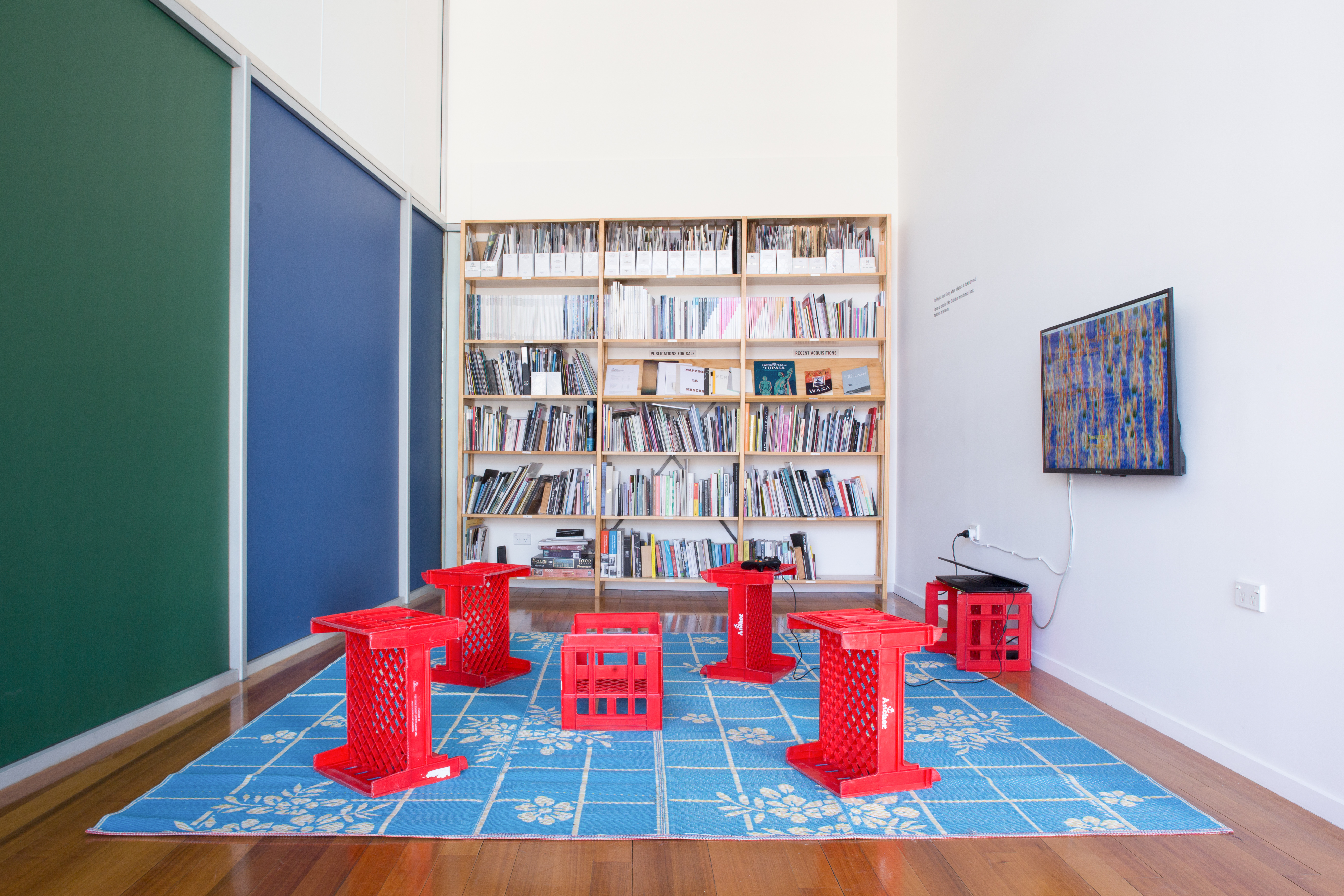
Two Oceans at Once at The Physics Room. Kahurangiariki Smith, FOB, 2016. Video game, TV, controller, milk crates, mat. Interactive installation. Photo courtesy of Janneth Gil.
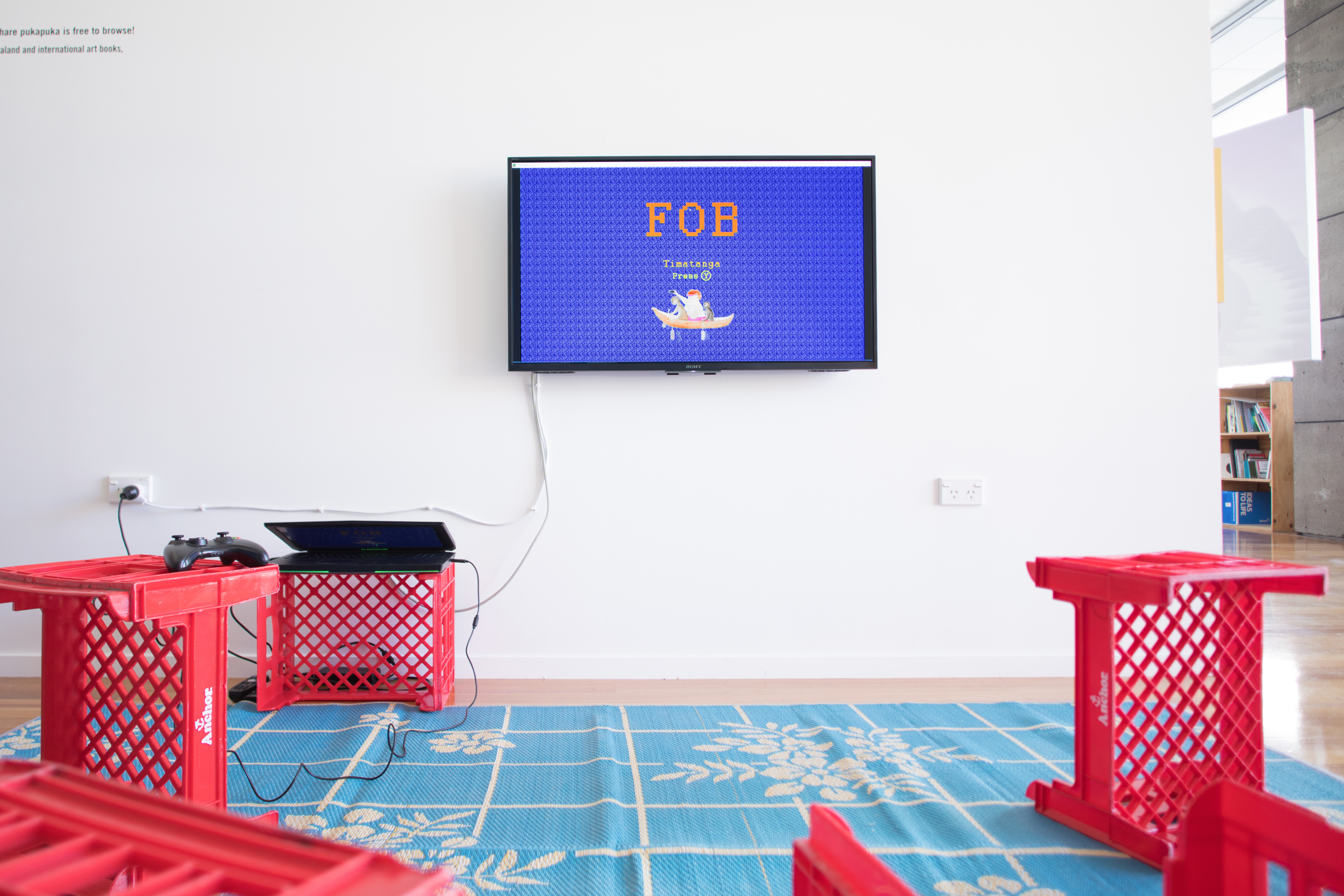
Two Oceans at Once at The Physics Room. Kahurangiariki Smith, FOB, 2016. Video game, TV, controller, milk crates, mat. Interactive installation. Photo courtesy of Janneth Gil.